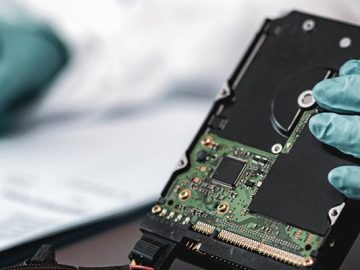Abu Dhabi is turning racetracks into laboratories – on the Yas Marina circuit, better known for hosting Formula One, the Autonomous Racing League (A2RL) is transforming motorsport into a proving ground for AI, robotics, and next-generation mobility systems.
Organised by Aspire, the programme management and challenge-led arm of the emirate’s Advanced Technology Research Council (ATRC), A2RL sits at the intersection of research, competition, and regulation. The goal is to make Abu Dhabi a world leader in autonomous innovation by taking AI and robotics out of simulation and into the real world.
“For me, A2RL represents the perfect fusion of passion and purpose,” said Stéphane Timpano, CEO of Aspire.
“Racing has always been about pushing machines to their limits, and in autonomy we’re now pushing algorithms to do the same. Representing the UAE on this global stage is a privilege because it shows the world that Abu Dhabi is not just following innovation trends, it’s setting them.”
Each race places AI systems under the kinds of stress that future autonomous vehicles will face on public roads, from GPS dropouts and sensor faults to unpredictable human inputs and split-second decisions at 250 km/h. These conditions generate valuable data for engineers developing the safety and reliability systems that will underpin tomorrow’s driverless transport.
“The racetrack is a live laboratory,” Timpano said. “Every lap, every overtake, every algorithmic decision is a glimpse into the future of mobility.”
Beyond motorsport: a deep-tech ecosystem
A2RL is not an isolated experiment. It is part of a wider national strategy to position Abu Dhabi as a hub for deep-tech innovation. Within the ATRC ecosystem, while Aspire defines grand challenges, the Technology Innovation Institute (TII) develops the underlying technologies, and VentureOne turns those breakthroughs into commercial ventures.
“A2RL is deeply embedded in the UAE’s innovation ecosystem,” Timpano said. “Because it’s organised by Aspire, part of ATRC, insights from the racetrack feed directly into research at TII and commercialisation pathways at VentureOne. This full-stack model is rare globally.”
A2RL’s vehicles, developed with TII, use identical Super Formula-derived chassis fitted with UAE-designed sensor stacks and computing units. That standardisation means teams compete purely on algorithmic performance, ensuring transparency and comparability of AI capabilities.
This integration between research, testing, and commercialisation sets Abu Dhabi apart. “What we learn on the track doesn’t stay in competition,” Timpano said. “It moves into logistics, smart city planning, and even climate-tech applications.”
Building trust in AI and autonomy
The UAE views A2RL as both an R&D accelerator and a strategic signal of intent. It aligns with the country’s ambition to diversify its economy, attract global talent, and establish itself as a trusted testbed for emerging technologies.
“A2RL allows us to test autonomy under extreme conditions, generate valuable data, and shape the regulatory frameworks that will govern tomorrow’s smart mobility systems,” Timpano said. “For us, competition is more than a spectacle, it’s a strategic tool to accelerate trust, innovation, and leadership.”
The league’s first season drew international teams from the US, Europe, and Asia, and more than 600,000 online viewers. A parallel AI drone race, in which an autonomous drone outpaced a professional human pilot, showcased the UAE’s growing leadership in multi-vehicle autonomy.
In 2025, A2RL will form the centrepiece of Abu Dhabi Autonomous Week, expanding into air, sea, and land mobility categories and uniting researchers, regulators, and manufacturers under a single ecosystem.
“It’s where policy, R&D, and industry come together,” said Timpano. “A2RL is the public showcase of that progress where research meets real-world application in front of a global audience.”
Inspiring and training the next generation
A2RL is also helping shape the UAE’s next generation of innovators. The excitement of seeing AI-driven vehicles compete at the limits of physics has inspired Emirati students to pursue careers in coding, data science, and robotics.
“Through our STEM (science, technology, engineering and maths) programmes, students are learning to code drones, design algorithms, and build systems that can compete on a world stage,” said Timpano.
In partnership with Unicef, Aspire recently launched a drone STEM initiative where over 100 Emirati students received training in drone design and AI flight control with more than 60% earning international drone operator certification.
For startups, the league doubles as a live demonstration platform, offering a space to trial sensing, perception, and AI control systems under real-world stress and in front of global investors and equipment manufacturers.
“Over time, I believe the league will be remembered not just for its competitions, but for the ecosystem of talent, ventures, and breakthroughs it helped ignite in Abu Dhabi’s knowledge economy,” said Timpano.




